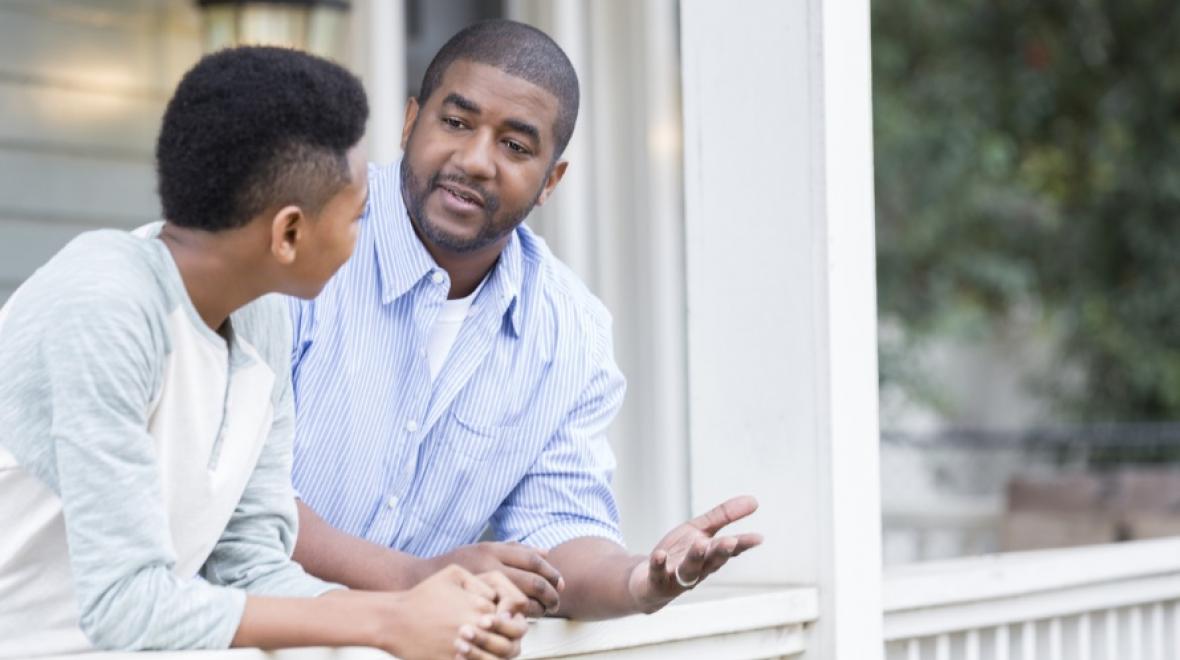
It’s not surprising that over the weekend my 15-year-old son asked me this:
“Mom, what is going on with the Kavanaugh hearings?”
The past few days, Brett Kavanaugh has dominated the news and been the topic of many heated conversations across the country.
Everyone has an opinion on the situation and whether or not Judge Kavanaugh should or will be confirmed as a Supreme Court Justice.
The situation is complex and polarizing so knowing precisely what to say to your child about the Kavanaugh hearings can be confusing.
Katherine Firestone, Founder of the Fireborn Institute, a non-profit that provides parents with practical strategies to help their children in school, says, “When talking about sensitive issues like this one, it’s important for parents to be as honest and clear as possible. Talking about exactly what happened helps kids understand and process the seriousness of the situation.”
While parents may want to shy away from discussing the details, Firestone cautions that this is not a good idea. “Often parents want to soften the blow and will use vague language to protect their children. Or parents may be tempted to dismiss their children's inquiries and tell their children not to worry about it or that it's a grown-up thing. Both of these approaches can harm kids in the long run because it makes it difficult for them to grasp the situation. This lack of understanding can cause them extra anxiety. They also may learn that they can’t come to their parents to talk about serious issues.”
Allow your child to ask questions and express opinions.
To start, ask your child what he has heard about the situation and how it makes him feel. Be clear about what happened in the past and what is going on currently.
Parents can explain to their kids that Brett Kavanaugh has been nominated for the Supreme Court. A woman testified that Kavanaugh sexually assaulted her when the two were teenagers. Mr. Kavanaugh has denied he did this. The Senate's Judiciary Committee has decided that based on the testimony they heard, they want the FBI to investigate further before determining whether Kavanaugh is the right person for the job. Parents can adjust the language for the age of their kids.
Allow your child to ask questions and express opinions. If you are anxious or upset about what is going on, it’s okay to share those feelings with your child. Firestone says, “Part of parenting is modeling how to handle stressful, emotional situations for your kids. Sharing your emotions will help teens understand their own feelings, as well as open up an opportunity for meaningful conversation.”
Because much of what is being discussed at the hearings happened when Kavanaugh was a young adult, parents may be nervous that their own children’s future could be impacted their behavior in high school or college.
Firestone says, “Social media is making teens’ lives more difficult because it’s hard to forget anything that happens since it’s captured for everyone to see. Their actions now have a much bigger impact than previous generations’ behavior did as teenagers.”
Discuss your concerns with your teen. Explain to them that their actions today can have lasting implications. Firestone says, “That doesn’t mean that they can’t ever make any mistakes — they will make mistakes. But it does mean that kids need to think very carefully about what they do because it can be harder to take back. It’s even more important now to be careful and to make good decisions. It can help to formulate a plan of action if your teen is in a similar situation as a victim or a bystander.”
The Kavanaugh hearing offers parents the chance to teach their children valuable lessons.
Firestone says, “We need to change the culture at our school and parties — that ‘boys will be boys’ — and talk more openly about sexual assault so that victims feel empowered to say something when an attack takes place."
Both young men and women need to be respectful of one another.
Firestone says, “Teens are old enough to know right from wrong. If they see something wrong happening, they need to speak up or intervene.”











